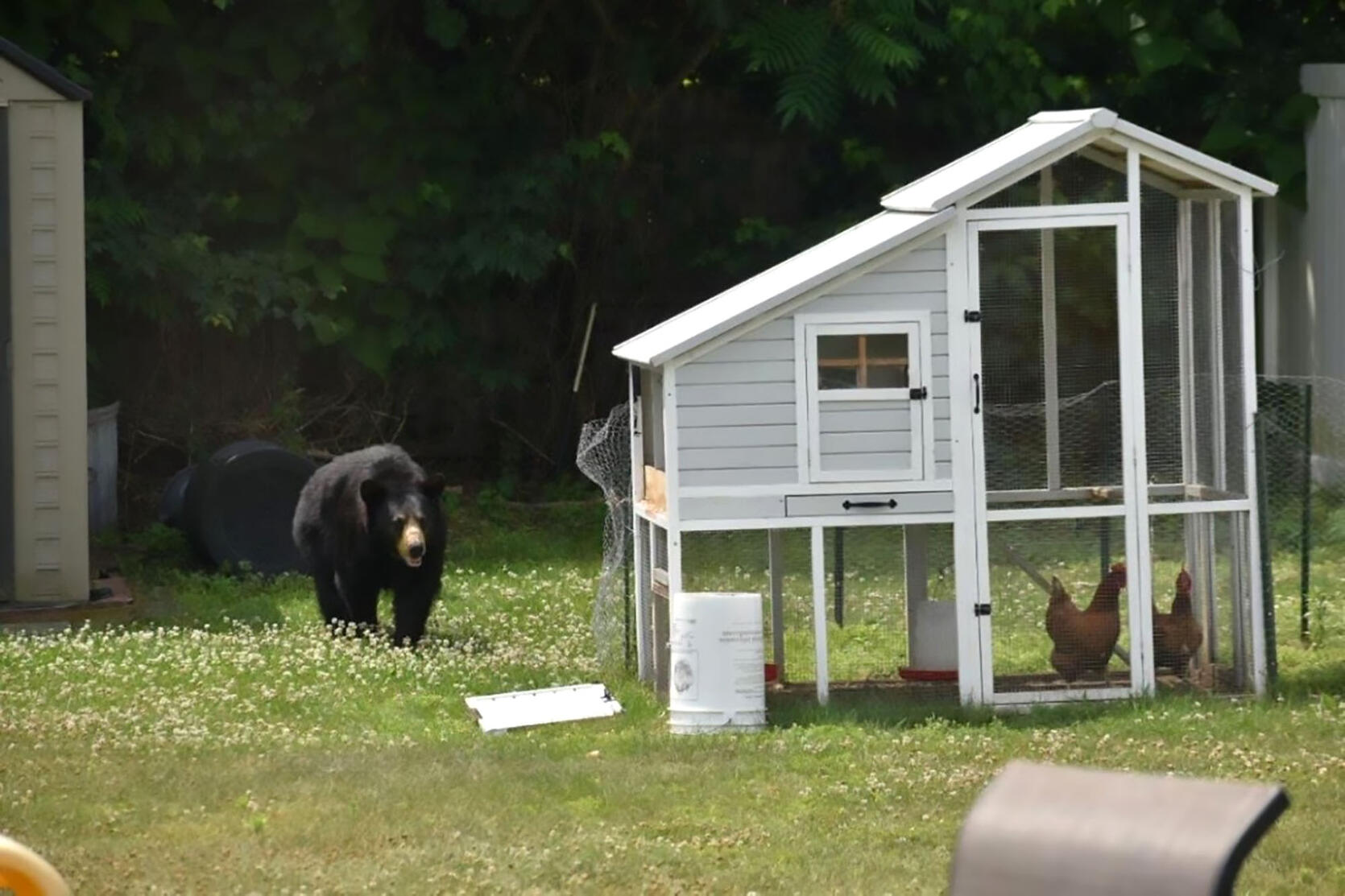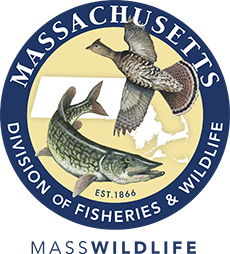- Division of Fisheries and Wildlife
Media Contact
Media Contact, MassWildlife

As backyard chicken farming has increased in popularity across the Bay State, conflict with wildlife has also greatly increased. The Division of Fisheries and Wildlife (MassWildlife) and the Environmental Police receive calls daily about predators taking chickens or breaking into coops. Any poultry that is unprotected, including free range chickens, are viewed as part of the natural food chain and will make an easy meal for predators like coyotes, black bears, foxes, fisher, birds of prey, and more. Read below for tips on how to protect your poultry from predators.
Fencing
- Poultry should be contained within predator-proof fencing. Remember, chicken wire is designed to keep birds in, but won’t always keep predators out. Use a sturdy fence that is at least six feet tall.
- Properly maintained electric fencing is the only way to protect chickens and other poultry from bears. Electric fencing is easy to set up and safe around people and pets. Basic electric fencing kits can range from $180 to $600. You can also read MassWildlife’s Electric Fencing Guide to Prevent Bear Damage to learn how to build your own electric fence.
- An outward overhang fence design or free spinning PVC pipe on a tight wire at the top of a fence can prevent some predators, like coyotes, from climbing over a fence.
- If you plan on moving your birds from one location to another, consider a portable electric fence design.
- For predators that can dig beneath fences, like foxes and coyotes, bury fencing at least 1 foot into the ground.
Enclosure Design
- Make sure your coop is sturdy and has doors and windows that can be closed tightly and securely.
- Protect poultry from aerial predators, like hawks and owls, by providing overhead cover. Crisscrossing overhead wires can also help to disrupt the flight patterns of raptors. Covering poultry runs with plastic netting or well-supported welded-wire fencing will reliably prevent attacks from above.
- Raising coop enclosures off the ground can prevent predators from sneaking in beneath the enclosure.
Additional Tips
- Store feed in a lockable and secure area. Use tight-fitting galvanized trash containers that will reduce attractive odors for wildlife like bears. Clean up any leftover food that may attract pests and predators.
- Provide adequate lighting and remove brush and large bushes from around the pen area perimeter.
- Noise making devices can scare off predators or alert you that something is in the area.
For more advice on how to prevent or address damage from wildlife, please contact your nearest MassWildlife District Office.
